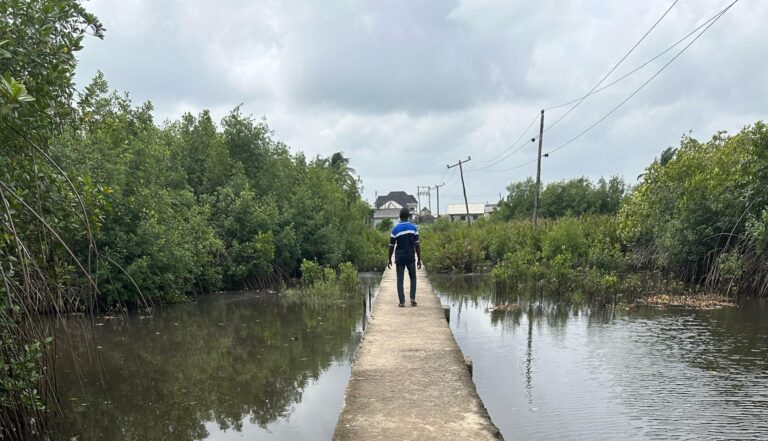The first part of this investigation exposed the pain and losses suffered by families in some riverine Lagos communities due to the absence of functional health facilities. In this second part, Bilkis Abdulraheem, spotlights more riverine communities, interrogates budgetary issues, and presents expert insights on bridging healthcare gaps in rural Nigeria.
A walk to Ikaare
Just like Irede and Ibasa, Ikaare is another riverine community that lacks a health facility. The neighbouring community to Irede took the reporter approximately 20 20-minute walk from Irede to Ikaare.
The Onimole of Ikaare, Abdullah Falana, a chief, in an interview, affirmed that the community finds it difficult to access quality healthcare, especially when it happens during the wee hours of the night, because of the difficulty in getting a boat to travel out of the community.
“If they are lucky to get a boat to charter, they might get to the mainland and not get a commercial vehicle to convey them to the hospital,” Mr Falana said.
While he acknowledged that health officials bring routine immunisation for residents regularly, he noted that after years of neglect, the community finally saw progress when the member representing Amuwo-Odofin constituency II in Lagos State Assembly, Rauf Suleiman, an indigene of Ikaare, stepped in to help secure a new primary healthcare centre (PHC) from the state government.
According to Mr Falana, “they only fenced the site of the proposed facility since last year with no further development.”
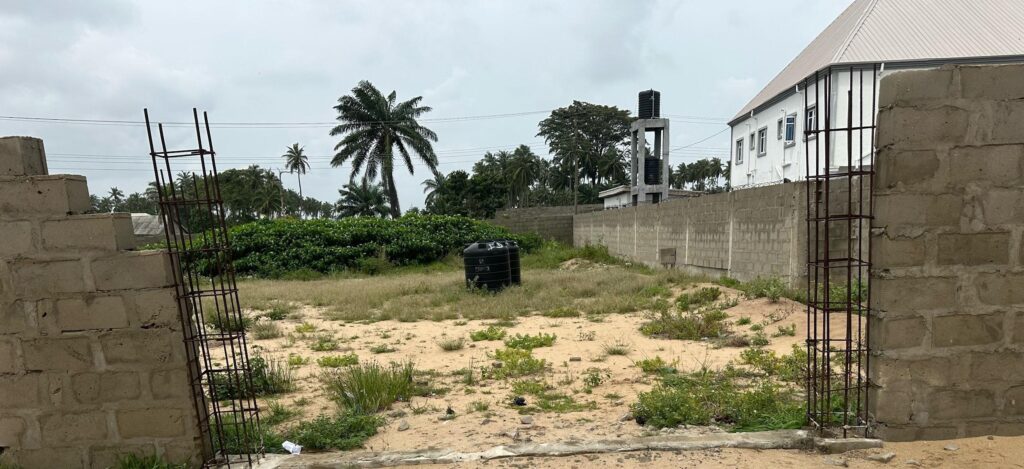
During investigation, this reporter came across a document published by the Lagos State Public Procurement Agency titled “Letter of Award Registered for January 2023”, stating that N253.9 million was budgeted for the construction of the Ikaare PHC.
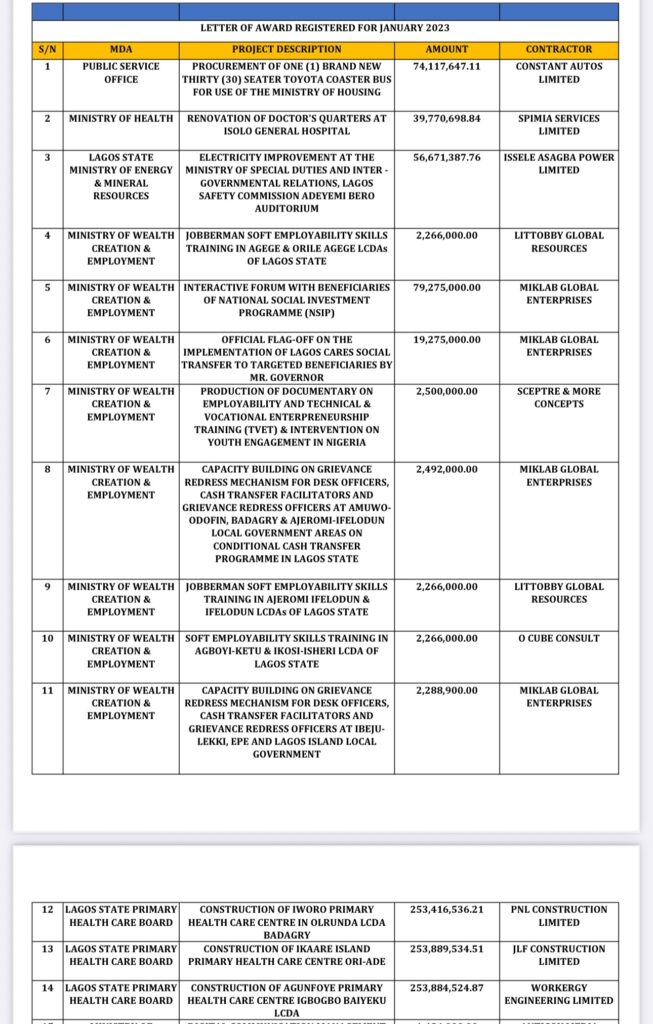
When asked why construction was yet to commence, Mr Suleiman, said the government discontinued building the proposed health centre due to a hike in building materials, but gave assurance that work would continue before the year runs out.
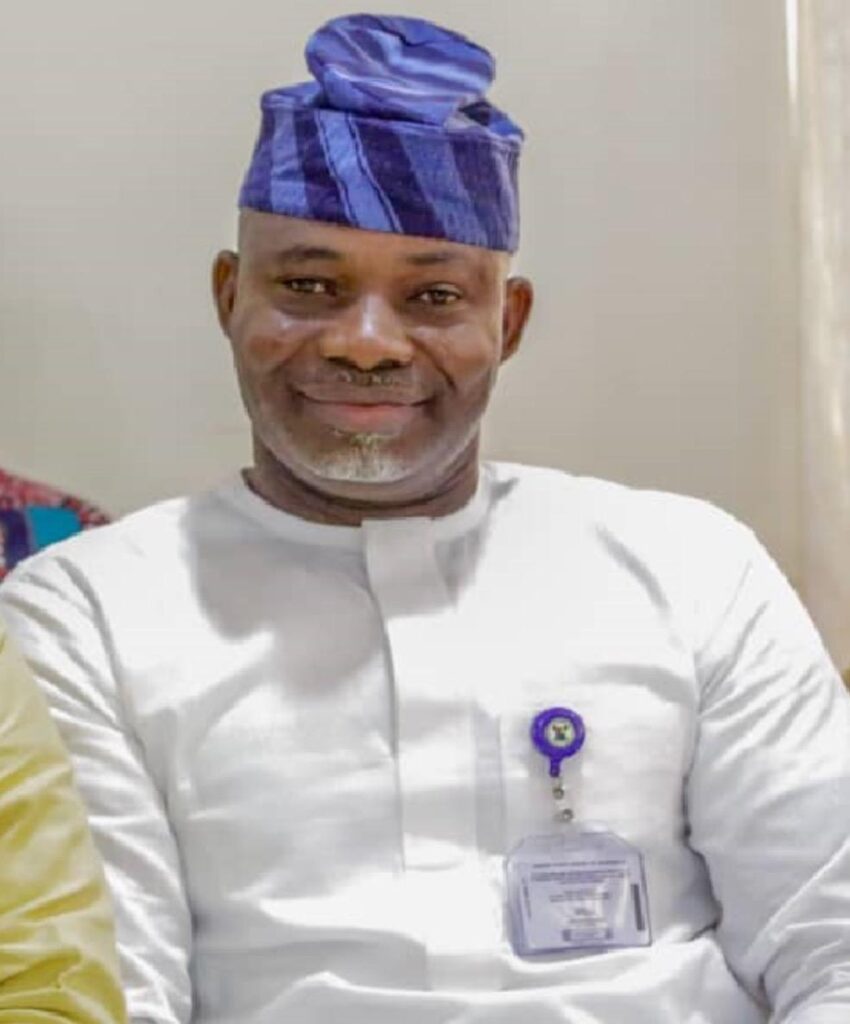
On his part, the Lagos State Permanent Secretary for the Primary Healthcare Board, Ibrahim Mustapha, explained that the state operates three prototypes of PHCs: Health Posts, which run for eight hours daily; PHCs, which serve larger populations; and Comprehensive Centres, which operate round the clock and provide services comparable to those of general hospitals.
He disclosed that plans have been concluded to make the Ikaare facility a comprehensive centre, operating 24 hours and offering services like general hospitals, to meet the needs of residents and neighbouring communities.
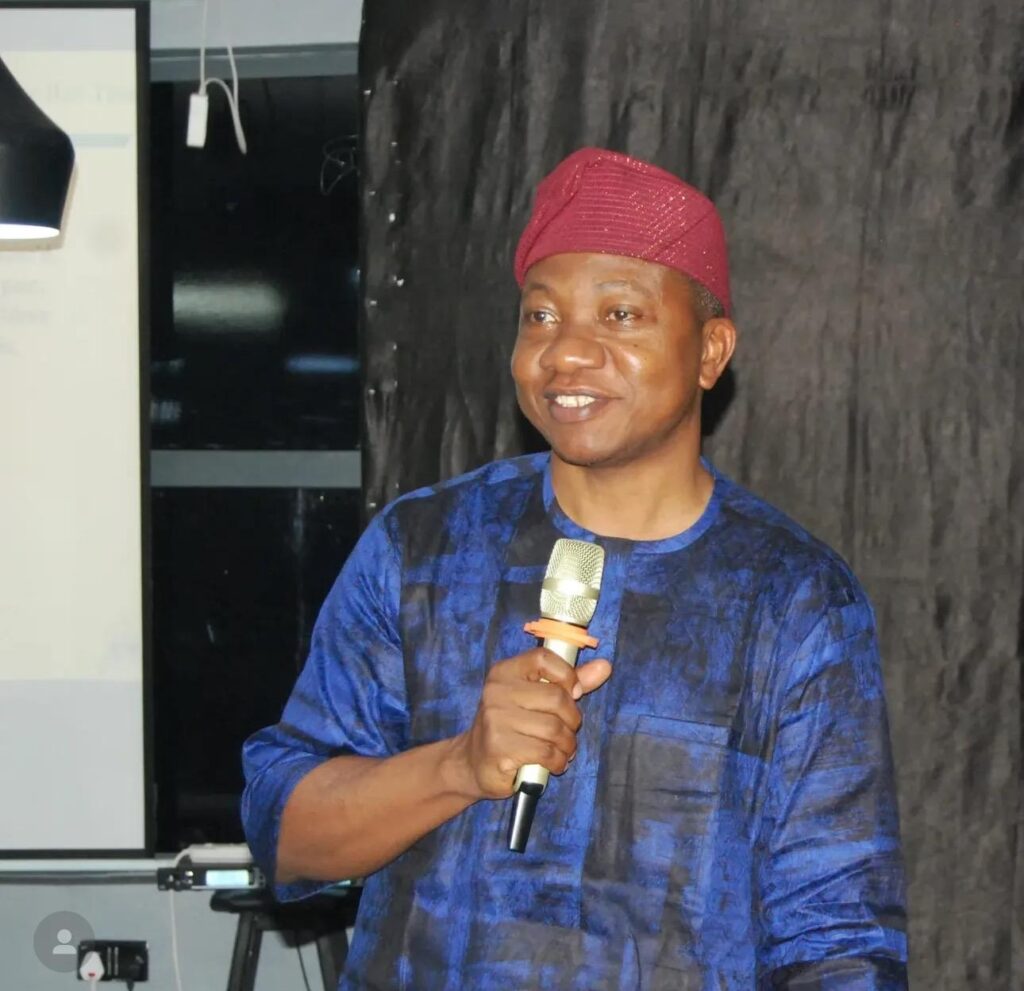
“Ikaare Health Facility is one of the four approved comprehensive centres, and we are currently processing funds for the contractor to continue construction,” he said.
Mr Mustapha described the facility as “green”, featuring a solar-powered roof to ensure an uninterrupted electricity supply, thereby eliminating dependence on the national grid. It will also have the capacity to be converted into an isolation centre in the event of a public health emergency.
The Permanent Secretary said the allocation for the PHC was captured in the 2025 budget and assured that construction work will commence soon.
Residents of Ikaare who didn’t give their surnames, Biodun and Temitope, told this reporter that for child delivery, first aid treatment and minor ailments, they rely on the former queen, who is a nurse and other auxiliary nurses residing in the community.
They added that when the case is severe, residents from Ikaare would have to trek to Irede, which is about 20 20-minute walk to board a boat at Abule Osun Terminal to either satellite town primary healthcare center or Ojo.
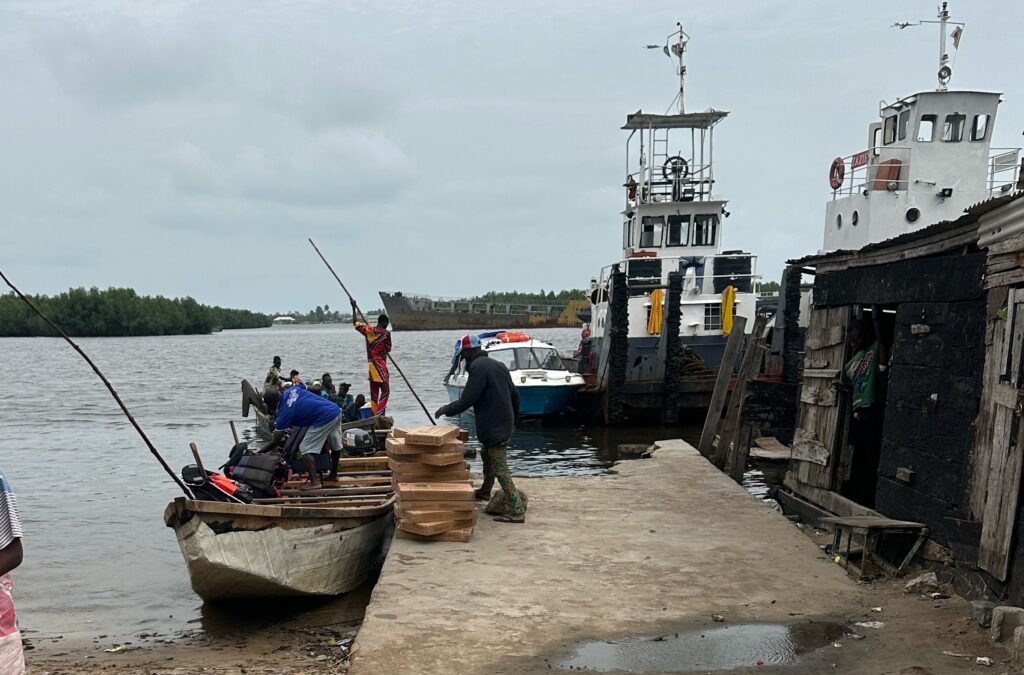
For Abdul Sodiq, he takes his wife to the mainland for delivery. When asked what if she falls in labour at midnight, he said “I will reach out to boat riders to transport her to the mainland”
They advocated provision of basic amenities, especially a health facility and a bridge to link the riverine communities directly to the mainland.
When “the reporter” reached out to the Queen, Dare Akinyemi, she said she left Ikaare a few weeks ago after her husband’s demise on 22 May.
Also Read: Cancer Care: Bimbo Oloyede’s foundation donates to hospitals in Lagos
Mrs Akinyemi, the olori, explained that she learnt nursing for eight years in a private hospital before moving to Ikaare where she lived and practiced nursing and midwifery for 30 years without recording any mortality case.
“Whenever I see a patient with conditions beyond my potential, I refer them to a hospital up land”.
She added that leaving Ikaare would not create a vacuum because there are other auxiliary nurses in the community that treat residents for minor illnesses.
Ibeshe: Upgraded but not fully functional health centre
Ibasa is connected to Ibeshe through land, and it took this reporter about 30 minutes to trek to Ibeshe. She saw the newly renovated primary healthcare centre, which was assessed by the State commissioner for health, Akin Abayomi, a professor, about two years ago when the state government approved it for rehabilitation.
Residents said it is only the maternity clinic that is in operation while other departments in the facility have not commenced work. “It is only the maternity clinic that works between Mondays to Fridays only”.
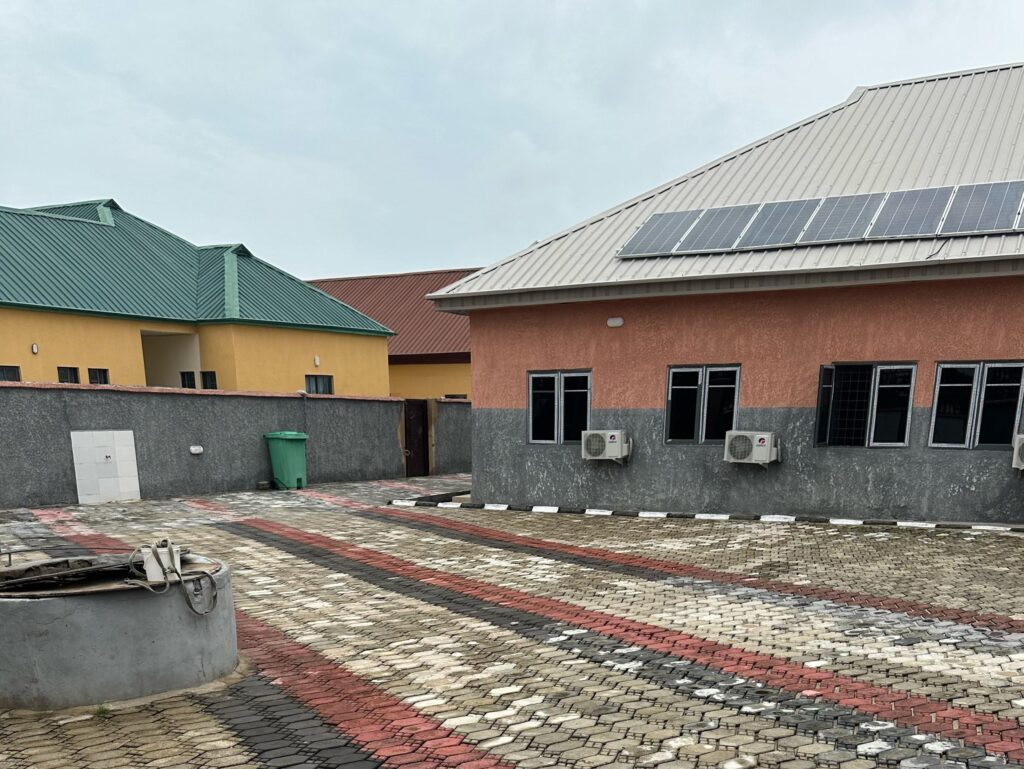
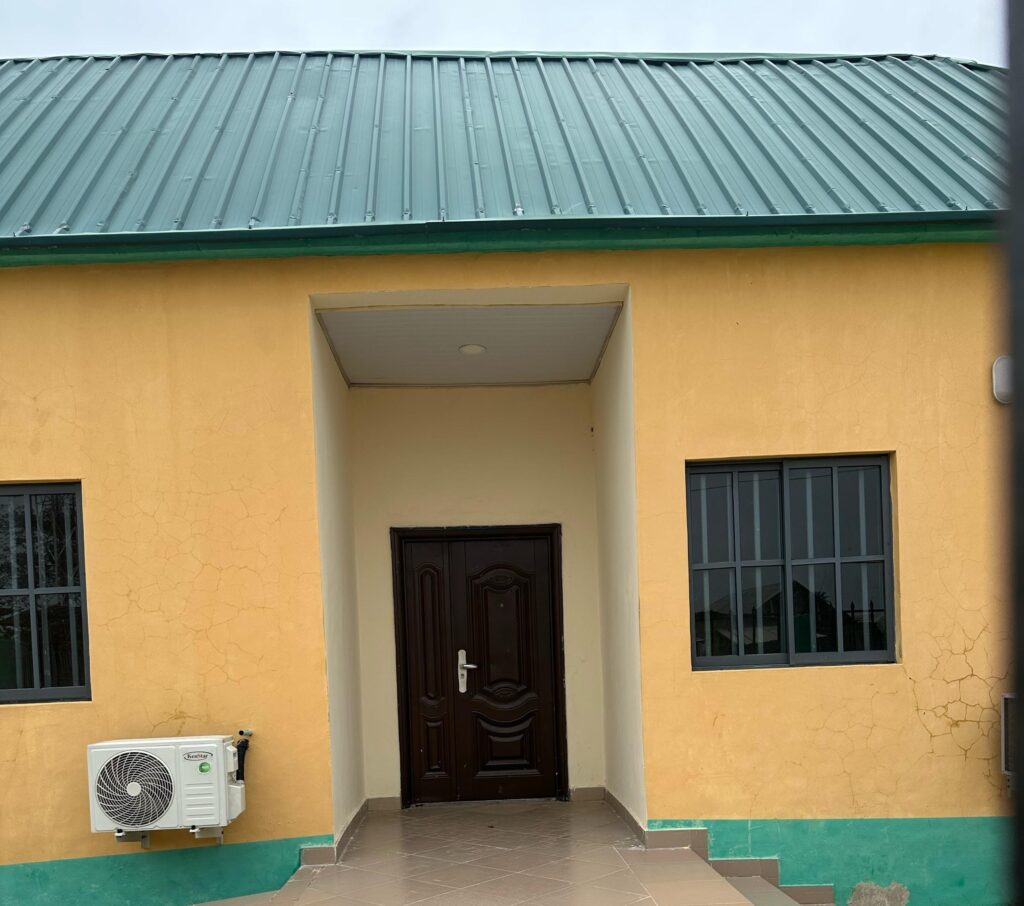
Some of the residents said they still rely on patent medicine stores, traditional birth attendants and clinics outside the community. Nevertheless, they commended the government’s efforts in renovating the health facility but called for full operation.
“We want the government to give us nurses and doctors and make the hospital fully operational”.
Reacting to the situation, the Permanent Secretary of the Lagos State Primary Healthcare Board, Ibrahim Mustapha, a doctor, acknowledged the manpower shortage caused by the “Japa Syndrome”, relocation of many healthcare workers abroad, which is one of the reasons why the PHC is offering skeletal services.
Mr Mustapha said the state plans to recruit about 900 new personnel in the coming months to bridge the gap, adding that the Ibeshe PHC will receive additional staff to enable other departments to commence operations fully.
“Once Ibeshe PHC has more personnel, full services will begin, and we are optimistic this will happen before the end of the year,” he assured.
On operational hours, Mr Mustapha noted that there are currently no plans for 24-hour service. However, he said such an arrangement would be considered once the necessary resources are available.
The lawmaker representing Amuwo Odofin constituency II, Rauf Suleiman, also corroborated the permanent secretary’s statement, that the renovated hospital would be equipped and staffed before the end of 2025, for the benefit of the residents. He added that accommodation was included in the hospital for nurses and doctors.
About two years ago, the health commissioner, Mr Abayomi during his assessment of the old Ibeshe PHC which was approved for renovation, announced plans to deploy the state’s first water ambulance to commute patients in cases of emergency as well as health personnel and drugs, but during our investigation, the residents said they are yet to see the ambulance commence operation.
“We have not seen any water ambulance in Ibeshe,” some of the residents maintained.
On 9 July, our reporter contacted the Lagos State Ambulance Services (LASAMBUS), which oversees ambulance operations in the state. She was provided a phone number to call for an interview. The reporter called the number that same day; a man answered and instructed her to send a message via WhatsApp. She complied but received no response.
Days later, on 14 July, she sent a reminder but there was no response. On the 29 July, she called again and was given the same instruction to send her questions via WhatsApp, still no feedback. She tried again twice and on the 20 August, he promised to get back, but he never did.
Meanwhile, Mr Mustapha of the state primary healthcare board explained that the ambulance is functional, but it appears residents are not making use of it by calling for the service. When asked if the community had been sensitised on how to access the ambulance, he admitted that there is a need to intensify public enlightenment.
A Bigger Picture: Budget and Gaps
According to the Lagos State Budget Implementation report for the first quarter of 2025, the capital budget for primary healthcare is N16.325 billion out of which N5.175 billion representing 31.7 per cent was achieved as performance for the first quarter.
The total recurrent budget for Primary Healthcare for year 2025 is N17.363 billion out of which N5.415 billion representing 31.2 per cent, was recorded as performance for the first quarter. The primary healthcare expenditure was said to be measured through the health sector objectives.
While N15.788 billion was budgeted for the provision of adequate and modern health infrastructure for health service delivery of the primary healthcare, only N5.175 billion representing 32.8 per cent was recorded as performance for the first quarter.
The sum of N145.094 million was budgeted for the provision of universal health coverage and financial risk protection for citizens, out of which N55.596 million representing 38.3 per cent was recorded as performance for the first quarter.
At a recent media engagement on Reproductive, Maternal, Newborn, Child, Adolescent Health and Nutrition, Health Financing and Primary Healthcare Centres services in Lagos State, the state Family Planning coordinator, Lateefatu Adeleye said Lagos has over 30 million population with 329 primary healthcare centres, 28 secondary healthcare facilities, five tertiary health facilities and 4, 221 accredited private health facilities.
The Chief Executive Officer of AK Metal Construction Company, Abdulhakeem Abubakar said with an estimated N150 million, a standard bungalow primary healthcare centre can be built within two to three months.
Meanwhile, the chairman of the Nigeria Medical Association (NMA), Lagos state chapter, Saheed Babajide said the significance of PHC to those at the grassroots cannot be overemphasised.
Mr Babajide urged both Lagos state and local government to equip the available healthcare centres in the state with qualified nurses and doctors rather than just community health extension workers popularly known as CHEW nurses because there is a limit to the services they can render.
He also encouraged the governments to bridge the healthcare gaps in rural communities by partnering with nearby private hospitals. “Governments can collaborate with private hospitals close to rural communities, by ensuring they offer primary healthcare services to residents at a subsidised rate, which the government will be responsible for”.
Mr Babajide emphasised that strengthening primary healthcare would cut maternal deaths and ease pressure on teaching hospitals by providing affordable early treatment.
He urged government support for health workers in remote riverine areas through safe transport, staff housing, and rural allowances. He also stressed that pregnant women, children, and the elderly in these communities deserve equal access to healthcare, not a system favoring urban centers.
With billions budgeted and projects announced, the residents of Irede, Ikaare, and Ibasa are still waiting on their lawmaker in the state assembly, Mr Suleiman to fulfill his pledge, as well as looking on to the Primary Health Care Board, Oriade Local Council Development Area and the Lagos State Government to build health facilities to access prompt healthcare services.
Residents of these riverine communities yearn for standardisation of existing health facilities, building new ones where none exists, and ensuring health workers can safely reach even the most remote villages to lead healthy lives like those up land.
This report was supported by the Wole Soyinka Centre for Investigative Journalism (WSCIJ) under its Report Women! Female Reporters Leadership Programme (FRLP) with support from the Bill & Melinda Gates Foundation.

